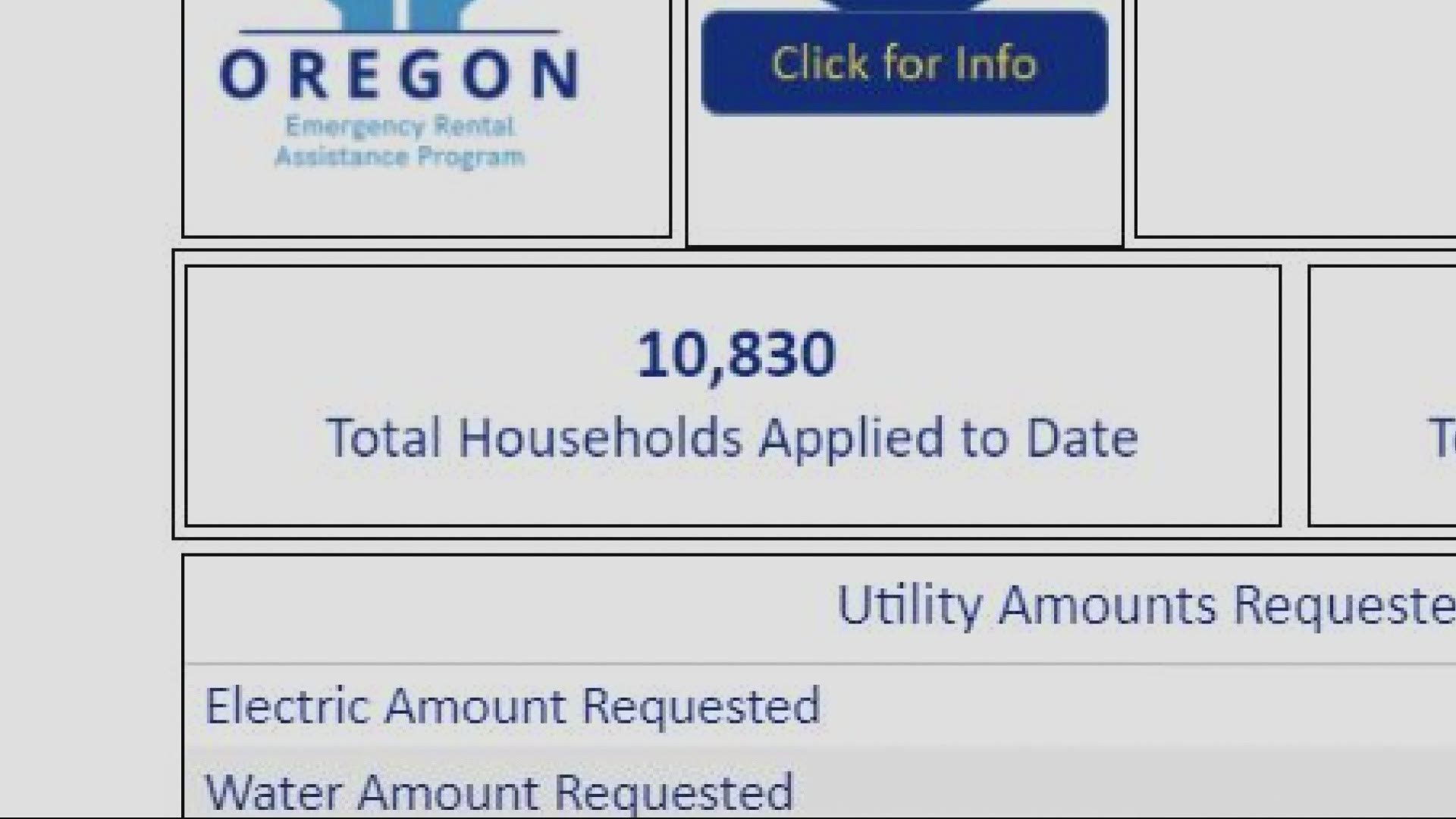PORTLAND, Ore. — People living in the more than 10,000 Oregon households who have applied for rental assistance, citing economic hardship tied to the COVID-19 pandemic, will now likely have two more months of protection from being evicted. The problem is, even if they qualify for that assistance, there’s no guarantee they’ll get the money in time. The state’s backlog on doling out rent assistance is that bad.
Oregon lawmakers Tuesday passed Senate Bill 278. While renters have until the end of February 2022 to pay back rent from April 2020 through the end of June 2021, they’ll be required to start paying monthly rent in July. The bill, which still needs to be signed by Gov. Kate Brown, would give renters a 60-day pause on being evicted, as long as they provide documentation showing they’ve applied for rental assistance.
Without Senate Bill 278, the moratorium would have ended without that extra 60 days of protection on July 1.
Andrea Bell is the director of housing stabilization for Oregon Housing and Community Services, the state agency in charge of doling out this money. The need, she said, is daunting.
“Prior to the last 12 months or 14 months, OHCS was administering about $15 million to $17 million annually. Over the past 14 months, our partners and our local administrators have administered about $186 million,” Bell said in an interview Thursday.
The more-than tenfold increase in distribution of assistance may soon seem miniscule. That spike happened before the latest federal aid package, which came down in May. As of Thursday afternoon, a live data dashboard compiled by the state showed 10,830 Oregon households had applied for assistance. The average request per household came in at just over $6,900.
Rent assistance in Oregon, like in most states, is distributed by the state via local agencies. In the case of COVID aid, federal money gets approved at the state level and then dispersed by local housing authorities and non-profits.
Renters can apply for assistance through a number of avenues. They can go through those local community agencies or they can apply directly to the state via this website.
A key cause of the backlog is lack of staff, Bell said. Every application needs to be reviewed by a human, and there just aren’t enough. Oregon is investing in "surge capacity" employees to beef up local and state staffing levels.
“We're seeing some of our local administrators produce and pay out for applications in a month, what they were doing in a year,” Bell said.
Oregon’s moratorium extension was one of three announced this week. Thursday the CDC extended the national moratorium by one month, through the end of July. Lawmakers argued, without that protection, roughly six million American renters are at risk of being evicted.
The state of Washington Thursday also extended its eviction moratorium through the end of September. Gov. Jay Inslee made the announcement Thursday, adding the extension comes with caveats. Washington renters have to start paying rent in August or have signed up for assistance.

